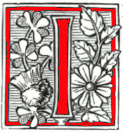
n Middlemarch, George Eliot asked "who shall tell what may be the effect of writing? If it happens to have been cut in stone, though it lie face down—most for ages on a forsaken beach [...] it may end by letting us into the secret of usurpations and other scandals gossiped about long empires ago:— this world being apparently a huge whispering-gallery." She attends, here, to the materiality of memory and to the capacity of the written word to etch indelible narratives. This one-day conference aims to scrutinise the diverse forms and implications of the word "code" in nineteenth century culture. The conference takes the definition of code as a collection of writings or symbols and will look to expand it through a range of inter-disciplinary and diverse papers.
To determine the effect of enigmatic or ciphered writing depends on the interpretative facility of the reader. To code and decode is to supply coherence through practising on otherwise unyielding or obscure forms. As such, it is a methodology that allies itself to the literary, historical, sociological, or philosophical study of past works. This conference will, therefore, ask its participants to engage with the complexity of textual or visual forms that resist or require interpretation.
Lines of enquiry could include ideas of moral codification, the Romantic preoccupation with symbolism, or thoughts surrounding the technology of reading such as those recently discussed in David Trotter's The Literature of Connection. This conference is generously supported by the BARS and BAVS Nineteenth-Century Matters Fellowship.
Paper topics might include, but are not limited to:
- Codes of conduct
- Taxonomies and text
- Codifying nineteenth-century narratives
- Nautical codes in verse and prose
- Hieroglyphic writing and nineteenth-century literature
- Technologies of the archive
- Genetic codes and the advent of science fiction
- The aesthetics of euphemism
- Ideas of connection
- Material culture and codification
- Visualising language
We would be thrilled to receive abstracts of 200-300 words, along with a brief biography (c. 50 words), addressed to Dr Isabella Brooks-Ward at codingthenineteenthcentury@gmail.com by the 1st of March 2024.
Created 9 January 2024